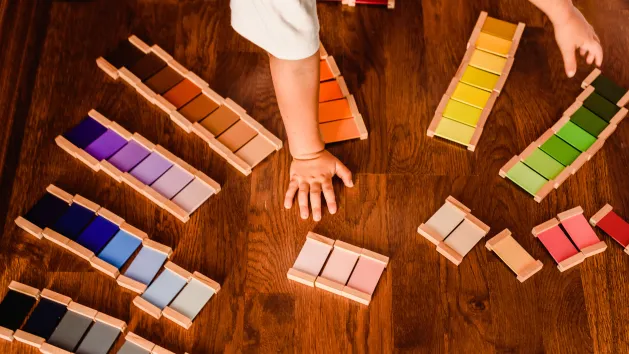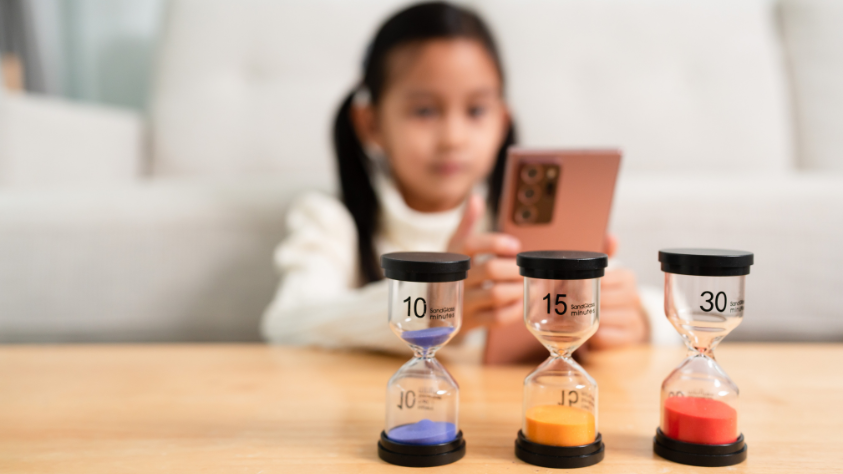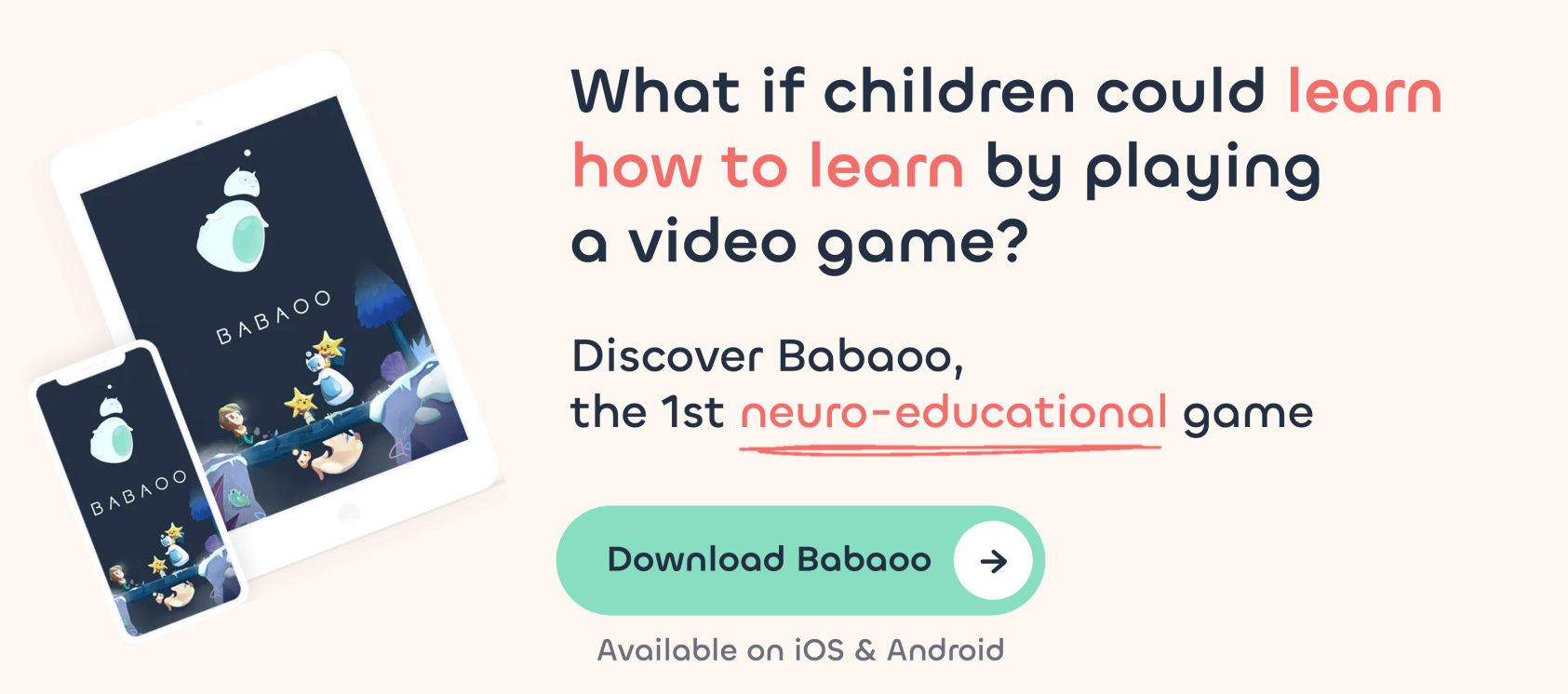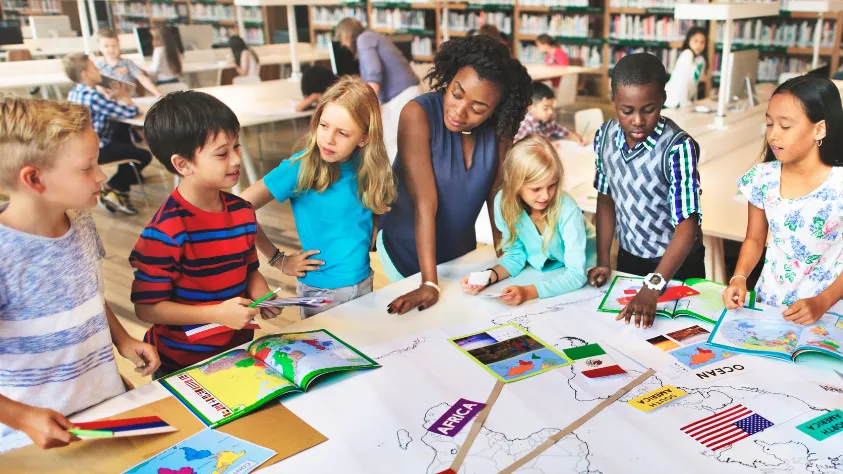
Screen time management: how to limit overexposure among young people?

Screen time and content quality
Screens have become part of our daily lives in just a few decades, revolutionizing the way we entertain ourselves in the Western world. This began in the 70s with the advent of television, which gradually appeared in almost every home, and has more recently translated into the democratization of the use of smartphones, tablets, individual portable games consoles… at an age that seems to go on and on. And as adults, we recognize that it’s become difficult to leave the house without making sure your phone is in your pocket!📱
No matter how many times the experts tell us to avoid exposing children under 3 to screens as much as possible (with the famous “3-6-9-12” method, which remains a flexible guideline), in reality, it’s very complicated to comply with this warning. But why exactly are screens perceived as problematic, and how can we successfully limit their use?
What are the consequences of overexposure to screens?
According to Grégoire Borst, professor of developmental psychology and cognitive neuroscience in education at Université Paris-Cité and director of the Laboratoire de psychologie du développement et de l’éducation de l’enfant at CNRS, the impact of screens is not the same in children under three and older children.
Below the age of three, children who find themselves overexposed to screens very often develop alag in the acquisition of a number of language skills. 💬 Why? Let’s take a look back at how language develops in toddlers. Children develop language skills when they engage in dialogue with their parents, brothers and/or sisters, as well as the children and adults around them… However, if this time is spent passively in front of a screen rather than nurturing this dialogue, the interactions so precious to the development and enrichment of language will be less numerous. So the problem is not screen time as such, but rather the competition that screen time makes, to other activities that will foster language development.
From the age of three, overexposure to screens before going to sleep impacts sleep time and therefore the development of brain plasticity, i.e., the ability to learn and memorize. 😴 In fact, it’s during sleep that the brain records all the information received during the day, yet if sleep isn’t optimal, the whole learning process can be called into question. Beware, the repercussions of poor screen time management affect children’s sleep, but also that of teenagers… and adults!
Learning to manage screens
There’s no point in totally banning the use of screens in your family, as this would only bring frustration and a poor understanding between you and your children. Instead, an alternative approach is to limit the impact that certain screen activities can have on the development of younger children, preferring a playful and effective use of screens on a daily basis. 🧠
To achieve this, it’s important to get interested in the content that captivates your children: ask them questions about the missions they have to complete, the hero they’re playing (if it’s a game), what they think about what they’re busy consuming. In short, create a space for discussion.
Be aware of how screen time is consumed, by installing a clock, an alarm, an hourglass… ⏳ Whether playing a game, watching a movie, we sometimes tend to lose track of time so caught up in the plot or the Feed we’re scrolling through. An awareness of how we spend our time can only be beneficial, for the whole family!
Compare together the time spent in front of a screen and that devoted to other occupations. After school and homework, it’s important to carry out other fulfilling activities until bedtime, and to vary the nature of these according to your needs at that time of day. Comparing screen and non-screen time, and putting it against the needs the child has, at that time of day, can promote awareness that diversifying occupations can be beneficial.
Finally, for younger children, choose together the screen-based activities, as well as the length and time of day they will take place. For example, your child will be allowed to use the tablet on Tuesdays, just long enough to watch an episode of his series or play three rounds of his game. Understanding the game your child is playing will enable you to better tailor your requests. Some games are played in rounds that can have random durations from one game to the next. Also, for certain types of game, it may be more suitable to agree with your child on a limit expressed in number of games, rather than screen time.
Babaoo’Tips💡
Screen use can have a detrimental impact on children’s development at 4 times in particular: morning, mealtime, bedtime and bedtime. Unfortunately in reality, these are the times when children are most exposed to screens. To help combat these pitfalls, Sabine Duflo, a psycho-clinician in Noisy-le-grand (Seine-Saint-Denis) has developed the mnemonic rule of the 4 “steps” :
- No screens in the morning,
- No screens during meals,
- No screens before going to sleep,
- No screens in the child’s bedroom.
The Babaoo recap
While we know today that children’s exposure to screens is a major public health issue, it’s important to consider its regulation both in terms of time, but also of content consumed. Today, in just a few seconds, our children can have access to the Internet, both for its positive sides, such as neuroeducational games, Wikipedia and others, and in its darker pages (the average age of first viewing pornography is 10!).
By avoiding overexposure and focusing on an experience to be shared as a family, you’re helping your children and teenagers improve their sleep, fitness and everyday learning. By using well-known methods such as the 3-6-9-12 beacons, or solutions presented by parents motivated to help their children find a digital balance, such as the balnz app which motivates and rewards young people to find a balance with their screen time, it’s possible to drastically reduce the time spent using phones, tablets and other screens.
And you, what’s your technique for avoiding overexposure of your children?
You may also be interested in these articles



